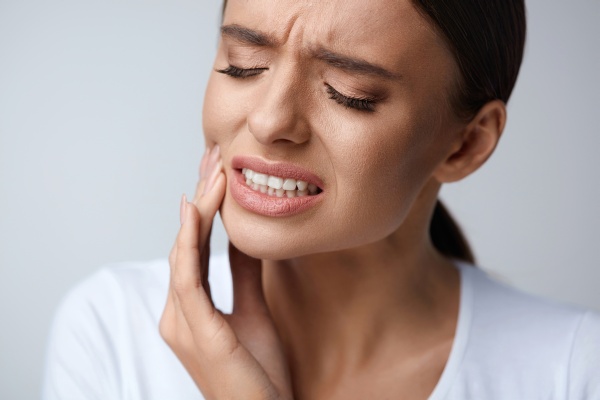Biting Pain: Unveiling the Culprits Behind Toothaches When Chewing
Experiencing a sharp jolt of pain every time you bite down can be a real downer (pun intended!). This pain, often referred to as a toothache, can significantly disrupt your daily activities, from chewing your food to simply smiling. This comprehensive guide explores the reasons why your tooth might hurt when you bite down, offers insights into potential solutions, and provides valuable tips for maintaining optimal dental health.
Understanding Tooth Anatomy: The Layers Beneath the Enamel
To understand why a tooth might hurt when you bite down, it’s helpful to have a basic understanding of tooth anatomy. Here’s a breakdown of the key structures:
- Enamel: The hard, outer shell of the tooth, protecting the inner layers from damage and decay.
- Dentin: A softer layer beneath the enamel, containing microscopic tubules that connect to the tooth’s pulp.
- Pulp: The innermost core of the tooth, containing nerves, blood vessels, and connective tissue.
The Culprits Behind Biting Pain: When Your Tooth Cries Out
Several factors can contribute to pain when biting down. Here are some common culprits:
- Cavities: When tooth decay reaches the dentin layer, it can irritate the tiny tubules, causing pain, especially when pressure is applied while biting down.
- Cracked Tooth: A cracked or fractured tooth can cause sharp pain when biting down, depending on the severity and location of the crack. The pain might be constant or occur only when biting down on certain foods or in specific directions.
- Large Fillings: Very large fillings, especially older ones, can sometimes cause sensitivity when biting down due to wear and tear or irritation of the dentin layer.
- Gum Disease: Advanced gum disease (periodontitis) can damage the supportive bone around the teeth, leading to loose teeth and pain when biting down.
- Abscess: An abscessed tooth, a pus-filled infection at the root of the tooth, can cause severe pain, throbbing or pulsating, that worsens when biting down due to the pressure on the inflamed area.
- Sinus Issues: Inflammation of the sinuses, located near the upper teeth, can sometimes cause referred pain that feels like toothache, especially in the upper jaw, and might be exacerbated by biting down.
Diagnosis and Treatment: Finding Relief for Your Toothache
It’s crucial to seek professional help from a dentist to diagnose the cause of your toothache and receive proper treatment. Here’s what to expect:
- Examination: Your dentist will examine your teeth, gums, and mouth for signs of decay, cracks, gum disease, or other issues. X-rays might be taken to visualize the internal structures of the tooth and jawbone.
- Treatment: The treatment plan depends on the underlying cause. Here are some potential approaches:
- Cavities: For cavities, a filling will be placed to remove decay and restore the tooth structure.
- Cracked Tooth: Depending on the severity of the crack, treatment options might include a filling, crown, root canal, or even extraction in severe cases.
- Large Fillings: If a large filling is causing sensitivity, your dentist might recommend replacing it with a different material or performing a root canal if the pulp becomes involved.
- Gum Disease: Treatment for gum disease typically involves scaling and root planing (deep cleaning) to remove plaque and tartar from below the gum line. In severe cases, additional procedures or surgery might be necessary.
- Abscess: Abscesses require prompt treatment with antibiotics to address the infection. Depending on the severity, a root canal or extraction might also be necessary.
- Sinus Issues: While your dentist can diagnose a toothache, if the culprit is a sinus issue, they might refer you to an ear, nose, and throat (ENT) specialist for diagnosis and treatment of the underlying sinus problem.
Finding Temporary Relief at Home: Strategies to Manage Toothache
While professional treatment is essential for addressing the underlying cause, here are some strategies you can try at home to manage toothache temporarily:
- Over-the-Counter Pain Relievers: Pain relievers like ibuprofen or acetaminophen can help manage discomfort.
- Cold Compress: Applying a cold compress to the outside of your cheek near the affected tooth can help reduce inflammation and pain.
- Rinsing with Warm Salt Water: Dissolving half a teaspoon of table salt in a glass of warm water and gently rinsing your mouth can help reduce swelling and discomfort.

